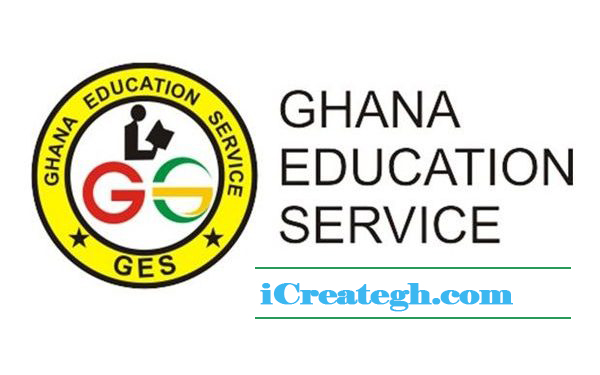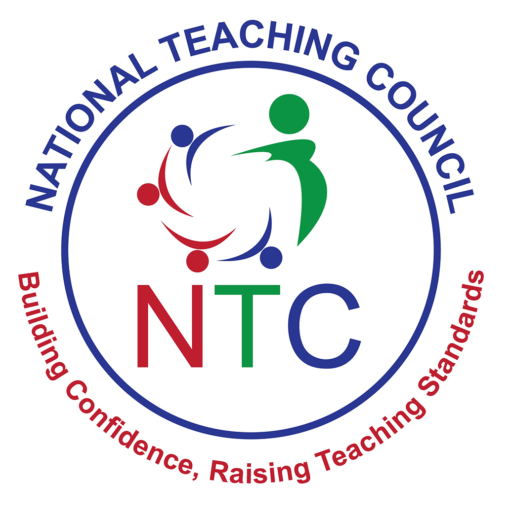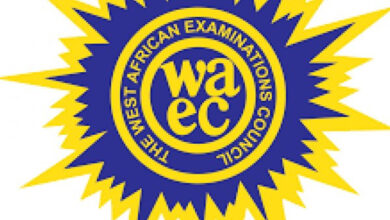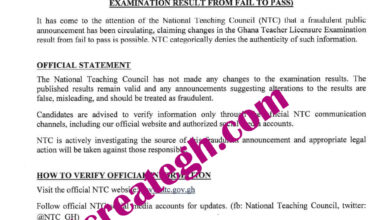General Knowledge Questions for PA & Management Issues In Ghana

General Knowledge Questions In Public Administration And Management Issues In Ghana
General Knowledge Questions Objectives
This is meant for all teachers and students Teachers who intend attending any GES interview. This will prepare you also for any upgrading to all the ranks; PS, AD2 , AD1 AND DD.
- Scheme of service can be explained in one word as: Ans.- Ranks/Grades
- In the scheme of service of the GES, Director I is the same as: Divisional Director.
- Willfully disregarding lawful instruction given by a superior officer amounts to Insubordination.
- How an aggrieved teacher seeks redress from management is referred to as Grievance procedure
- Measures adopted by the Government to sustain the national budget are called Fiscal Policies.
- Which unit/Department/Ministry/Agency gives clearance for the payment of GES employees? Ministry of finance
- All the revenue generated in the country are kept in which account? Consolidated Account/Fund
- A person who has a role to perform is referred to as: Focal person.
- Which department in Ghana is responsible for opening bank account for government departments? Ans. CAGD.
- Under the new National Pension Act, a teacher qualifies for full pension after contributing for how many years? 15years.
- The rating for a number of months an employee has contributed to SSNIT Pension Scheme is referred to as – Ans. Pension Right.
- The lumpsum paid to workers after retirement is called- Ans. Gratuity.
- Which department is responsible for insuring impartial justice and fair hearing in Ghana is Judicial Service.
- Bringing Government machinery to the lower level for people’s participation and decision making is referred to as – Decentralization.
- Which department/unit is responsible for determination of national minimum wage in Ghana? Tripartite committee
- The inspection conducted to recommend a school WAEC to take part in WAEC Examination is referred to as – Recognition visit
- Money derived from the sale of food crops in a JHS farm can be regarded as – Ans. IGF
- The department responsible for fiscal policies is – Ministry of finance.
- Where higher level allows lower power to act on its behalf but holding the lower level still accountable to the higher level is referred to as – Delegation of power.
- Measures for taking action against an offending employee by the employer is referred to as – Ans. Disciplinary procedure.
- The relationship between the GES and the teacher is based on a contract which involves reciprocal – Rights and duties.
- One basic contract document between an employer and employee is the – Appointment letter
- The agency/department responsible for settlement of industrial disputes and imposition of sanctions is – FWSC.
- The CEO of department/agency/ministry responsible for monetary policies in Ghana is- Ans. Dr. Ernest K. Addison.
- The benefit attached to employment provided by the employer through consultation with employees can be referred to as – Conditions of service.
Aptitude Test Questions and Answers in Ghana For PS, AD2 , AD1 AND DD – 2022
General Knowledge Questions In Public Administration And Management Issues In Ghana (Short Notes)
- Employer- Employee relationship
- The relationship between the GES (Employer) and the Teacher (Employee) is based on contract.
- Once the Teacher accepts the appointment to teach, he is deemed to have signed and entered into contract with the GES.
- The Teacher owes duties to his employer and gain some right and benefits from his employer.
- If the employee engages in illegal strikes, he may not be paid his salary. If he sustains injury during the course of his work, his employer is bound to pay him compensation.
- (a) Conditions of Service
- Refers to the various fringe benefits that a teacher can enjoy while working in the service.
- It comprises of salary, allowance, holiday, etc.
(b) Scheme of Service
- Refers to the various grades/ranks that a teacher attains during the service period.
(c) Code of Conduct
- Refers to the set of rules and regulations that govern the work of a teacher/profession.
- It comprises of offences and their related punishment/sanctions
(d) Code of Professional ethics
- Refers to rules/ethics that regulate the conduct of professions
- Note that code of conduct regulates the relation between the employer and the employee.
(e) Collective agreement
- Refers to benefits attached to employment agreed between employer and the representatives of the employees through collective bargaining procedure.
General Knowledge Question on Teachers
- (a) Misconduct of a Teacher
- When an action or conduct of teacher goes contrary to the GES rules and regulations, it is described as a misconduct
- It refers to any commission or omission which is inconsistent with the faithful discharge of a teacher’s lawful duties.
(b) Insubordination
- Refers to a situation where an employee willfully disregards lawful instruction given by a superior officer.
- This is a serious offence
(c) Disciplinary procedure
- Refers to how management deals with an offending teacher/officer.
- Read on the procedure in the labour laws.
- Read on school and district disciplinary committees.
(d) Grievance Procedure
- Refers to how an aggrieved teacher/officer seeks redress from management.
- Refers to the labour laws for the details.
(e) Corporal Punishment
- Refers to a punishment intended to cause physical pain on a person. It is most often practised on minors.
- It has been banned in our schools since 2016. Check on alternative disciplinary tools proposed by the MOE/GES.
(f) Purpose of punishment
- To instill discipline
- To correct wrong doing
- To inculcate principles of moral training necessary for character formation.
- Roles of the Teacher Unions
- Educate members on national policies.
- Make input into all national education policies.
- Organized INSET for teachers especially on the core subjects.
- Provide welfare packages to members eg. Loan schemes, housing scheme, etc.
- Make input into the national budget.
- Have representatives on sensitive Government Boards eg. SSNIT, GESC, GBC Board, etc.
- Draft policies concerning Teachers’ conditions of service for Government approval.
NTC Past Questions and Answers on Numeracy – icreategh.com
General Knowledge Questions and Answers on Finance
- (a) Fiscal policies
- Are the measures adopted by government to sustain the national budget, eg. Tax policies.
- Responsibility of the ministry of finance.
(b) Monetary policies
- Are the measures adopted by the government to control money in circulations and management of foreign currencies, eg. foreign exchange rate.
- Responsibility of the Central Bank.
(c) Why should teachers be interested in these policies?
- They affect our salaries and allowances.
- They affect the provision of educational resources.
- Salary Issues
- Factors considered before fixing workers’ salaries
- Cost of living in the country.
- Qualification and experience of workers
- Demands of the job, eg. risk.
- Essential nature of the job.
- Government ability to pay.
- Who determines teachers’/workers’ salaries
- The Tripartite committee
- The committee determines the national minimum wage which serves as a guide to work out our salaries.
- Payment of our salaries
- Ministry of finance gives financial clearance.
- CAGD processes the salaries.
- BoG releases the money for payment.
- Public Finance
(a) Public finance concerns how the central Government raises revenue and spends it.
(b) Major sources of revenue for the Government
- Imposition of taxes
- Royalties from private companies.
- Dividend on shares, bonds.
- Proceeds from state owned Enterprises
- Fines from courts of law.
- Interest on loans to organisations and individuals.
- Loans from development partners
- Aids and grants from donor countries.
- Aids and grants from donor agencies.
(c) Public Accounts
- Consolidated Fund – this is where all the revenue generated by the Government are kept
- Contingency Fund – this is a special fund set aside for unexpected events such as fire outbreak, flood, etc.
- And any other fund that may be set up by an act of parliament eg Heritage Fund.
Why the Government has been experiencing budget deficit over the years
- Low productivity of Ghanaian workers.
- Heavy burden on the Government coffers for infrastructure, maintenance, services, etc.
- Balance of payment problems as we import far more than we export.
- Depreciation of the local currency due to increase demand for foreign currency for importation.
8. Role
a. Role – a position a person occupies in a group and his functions/responsibilities.
b. Focal person – a person who has a role to perform.
c. Role conflict – performing additional duties which are not yours. This is associated with serious challenges.
d. Role ambiguity – a person who occupies a position where his duties are not clearly defined.
General Knowledge Questions and Answers on Public Institutions
- Public Institutions
- They are established to provide specific services on behalf of Government to complement the work we do in the GES.
- Look for the functions of the following: Bank of Ghana, CHRAJ, EC, NCCE, CAGD, GRA, PSC, NLC, FWSC< National Tripartite Committee and any other public institutions, committees and commissions
- Public Services Commission
a. Established by 1992 Constitution
b. Composition
- Chairman
- Vice chairman
- Three (3) other members who shall be full time members.
c. Functions
- To recruit and appoint applicants into the Public Services
- To supervise and regulate entrance and promotion examinations (this is why they play some roles in our Promotion exercises)
- To established standards and guidelines on the terms and conditions of employment in the Public Services.
d. Some of the Public Services are: a. Education Judicial, c. Parliamentary, d. Health, e. GRA, f. Statistical, g. Civil, h. Legal, i. Prisons
General Knowledge Questions and Answers on National Pension
11. The National Pension
(a) SSNIT Law
- Old – Social Security Law 1991, PNDCL 247
- New – National Pension Act 2008, Act 766.
- Check on the amendments to Act 766.
(b) Read on:
- Contributions by workers and employers
- Distribution (1st, 2nd and 3rd Tiers)
- Qualifications for benefits
- Lump sum and survival benefits
- Monthly pension allowance for how long.
(c) Pensions – this is the monthly pension you will receive after retirement
(d) Gratuity – this is the lump sum paid to employees when they retire. (Please, read on the current development)
(e) Pension right – This is the rating for the number of months a contributor has contributed to the scheme.
- (a) Decentralization
- Bringing Government machinery to the lower level for people’s active participation in decision making
(b) Delegation of Function/Power
- Where higher level allows lower power to act on its behalf but holding the lower level still accountable to the higher level.
(c) Devolution
- Refers to giving legal authority to other bodies to undertake specific duties using their own discretion eg District Assemblies making their own bye laws.
Decontration
- Refers to setting up subordinate governmental units which are highly controlled and made accountable to the central government.
NTC Literacy Exams Past Question
General Knowledge Questions for the under listed topics will soon be loaded. Always check for updates
- Read on the following:
i. Leadership and leadership styles.
ii. Public –Partnership programme (NPP Government Policy in 2017)
iii. Government Bonds and Treasury bills.
iv. Types of leave.
v. Sources of fund for schools.
vi. Main Concerns of managers, school Heads, etc.
vii. Principles that guide organizations.
viii. Concept of authority.
Credit to:
HENRY BOATENG
AKOSOMBO VRA D /A R/C PRIMARY SCHOOL.
Source: icreategh.com
Do not Copy or Duplicate this content. Link back if you use a portion of our content in your write-ups. The content is copyright protected.
Check:
- How to use the internet responsibly | Learn with ease on the internet
- How to Pass any Exams with Ease
- Why Students Fail Examination
- Elective ICT trial Questions
- NSMQ Regional Qualified Schools, Dates and Points 2022
- Updates Here: WAEC Finally Releases BECE Time Table 2022 – icreategh.com
Join our Discussion Forum below.
<<< CLICK HERE TO JOIN OUR WHATSAPP GROUP >>>
<<< CLICK HERE TO JOIN TEACHERS PORTAL GH (GRP2) ON WHATSAPP >>>
<<< CLICK HERE TO JOIN OUR TEACHERS PORTAL GH ON TELEGRAM >>>
Please don’t forget to share this post. Click on the WhatsApp, Facebook, Twitter, Instagram button below to share the post.



